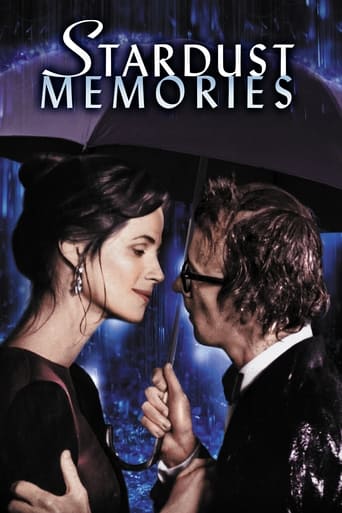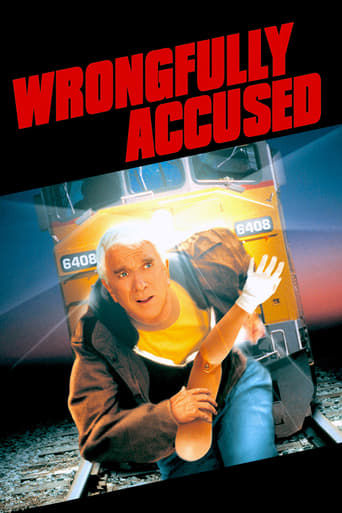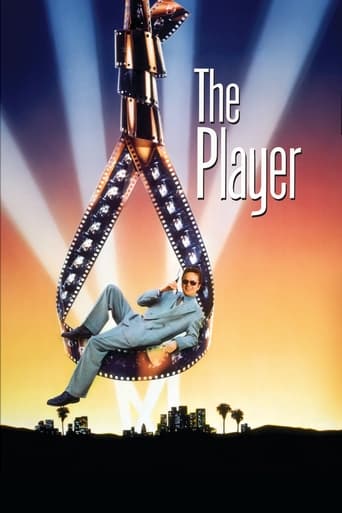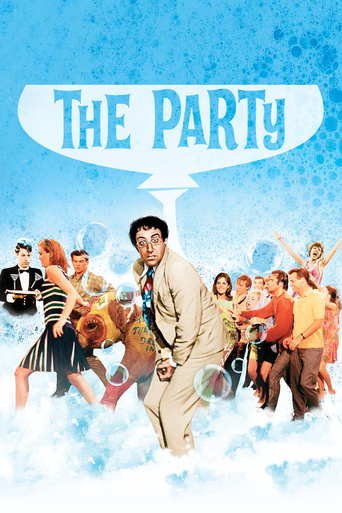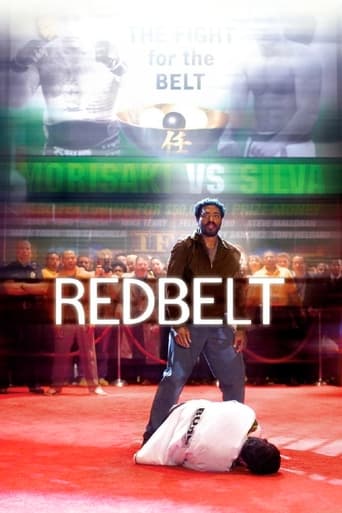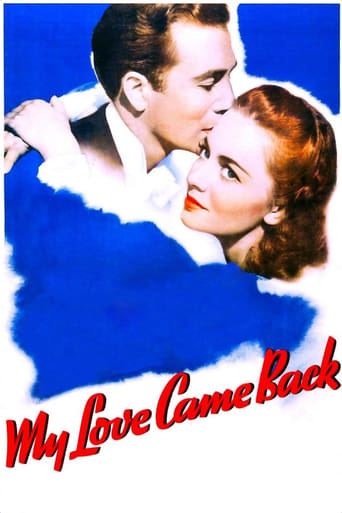Stardust Memories (1980)
While attending a retrospect of his work, a filmmaker recalls his life and his loves: the inspirations for his films.
Watch Trailer
Cast


Similar titles
Reviews
I think this is a new genre that they're all sort of working their way through it and haven't got all the kinks worked out yet but it's a genre that works for me.
Absolutely the worst movie.
This is a tender, generous movie that likes its characters and presents them as real people, full of flaws and strengths.
The performances transcend the film's tropes, grounding it in characters that feel more complete than this subgenre often produces.
This is all rather grey. The visuals are not as well defined or striking as Interiors (1978) or indeed Manhattan (1979) the previous two films and the narrative also lacks drive and clarity. There are effective scenes, the opening train sequence for instance but there is also pretentiousness, the whole Fellini cross reference. It also is surprising that without any formal structure and able to slip anything in anywhere, he sets up what is essentially a stand-up comedy situation and then blows it with mostly below par jokes. Allen himself is, however, very likable and if he can get anything right here, I guess it would be conveying himself. I'm not sure he shows Charlotte Rampling in her best light but maybe she was unhappy in the odd role. Jessica Harper comes across much more sympathetically but is never given anything decent to wear while Marie-Christine Barrault bursts into the film threatening to take it over or at least breathe some life into it but seems to wither before our eyes into the greyness of everything else. Constantly watchable though because of Woody Allen as himself.
Let us start by getting to the heart of the matter.Stardust refers to an extremely naive romantic quality.By this yardstick,stardust memories are those romantic remembrances of the past which are an integral part of human consciousness.Old memories must be assessed on a timely basis in order to make sense of the life one is leading.This is precisely something which Woody Allen chose to depict in his film "Stardust Memories".In many ways,this film gives viewers an idea about Woody Allen's status in American cinema.We get to see through this film that he is neither a product of Hollywood studios nor a leading light of American independent cinema movement.He is quite simply an American director who has embedded a lot of European sensibilities in his films.Stardust Memories reveals that film directors like to lead different kinds of lives outside of their film making activities.It is a common fact that everybody would like to be associated with a film director in order to promote some social cause.This aspect has been nicely depicted by Woody Allen in this film.One word about Woody Allen's women characters.The women characters of "Stardust Memories" are not weak but they have also not been shown as strong willed women.In this manner their is a mysterious ambivalence concerning this film's women protagonists.Black and White format is a nice method chosen by Woody Allen as all our dreams,all our memories are invariably made up of black and white images.
Alright so every great artist takes some inspiration from the colleagues in their field in modern times. And clearly u can tell throughout Woody Allen's work the inspiration he receives from European directors, Fellini and Bergman. But in this movie he hits u over the head with 8 1/2 directed by Federico Fellini, and unlike Hannah and Her sisters, which was largely inspired by Fanny and Alexander directed by Ingmar Bergman, his tribute falls short of worthy. Woody Allen is a Dissatisfied Director who agrees to spend a weekend at a film festival honoring his movies. He's swarmed by fans trying to tell him story ideas, asking for autographs and telling him how much they like his earlier works. Throughout the weekend, He meets and falls in love with different women too. Like I said earlier, this film feels a lot like a dream or a fantasy in parts like 8 1/2. It also feels like Woody is saying to his fans to back off after his previous movie was criticized. I think the story is great and the cinematography fits well in black and white. Te acting also works with the story but no performance is special. And the music is typical Woody Allen jazz.Overall above average movie but fails to be a great tribute to Federico Fellini, and 8 1/2.6/10
"Only Art you can control, art and masturbation. Two areas in which I am an absolute expert." Anyone would immediately guess which director is capable of such a hilarious self-deriding line. Woody Allen is a comedic landmark, the best American cinematic exportation to the European market. And this is only justice since the roots of his comedic geniality, besides the Eastern-Jewish humor, two filmmakers complete the European connection: Federico Fellini, the visionary and Ingmar Bergman, the introspective. Both Fellini and Bergman drove Allen's own contemplation of the world: while Fellini explores the depths of one's inner demons, lusts, and repressed impulses, Bergman elevates them to their world, questioning the place of men within their own condition. Allen never denied these two influences but it was not until the pinnacle of his slapstick career that he made them more obvious.Allen's tendency for homages could be foreseen in "Love and Death", a hilarious historical film parodying some iconic shots of Bergman's "Persona". "Annie Hall" and "Manhattan" intellectualized the relationships between men and women, but it was "Interiors" that provided the most proper cinematic expression to Allen's torments. The film was a clear homage to Bergman style-wise, but it was saying more about the conflict in Allen's own creative process, as if he was facing a sort of existential block, trivializing the achievements of the past, and questioning the reason-to-be of his work. If not mocking, Allen was questioning his own status as an intellectual clown. He made people laugh, so what? This nothingness might even echo the dichotomy between "art" and "masturbation", as if his oeuvre had no other purpose than satisfying an immediate, egoistical impulse, but leave nothing substantial for posterity.Through "Stardust Memories", released in 1980, Woody Allen is still stuck in his middle-career crisis, incapable to consider with objectivity the value of his work. Yet this time, it's not Bergman, it's not the "Ego vs. Rest of the World" perspective that is underlined, but "Ego vs. Subconscious". For such a diagnosis, the themes developed in "Stardust Memories" mirror Federico Fellini's "8½", the masterpiece chronicling the process of a film-maker's own actions and their incessant interferences with the impulses, grieves, childhood memories and personal fantasies. Both movies are in black and white and the references are obvious, just like "Interiors" that started with immobile contemplative shots of 'dead' nature; the very opening of "Stardust Memories" is an immediate reference to Fellini. Woody Allen, playing a fictional alter-ego director, Sandy Bates, stuck in a train full of sad-looking people, can't stand the suffocating atmosphere, forcing him to leave it immediately.However, the comparison with Fellini shouldn't undermine the review but only guide it to a better comprehension of Allen's motives behind the unusual format of "Stardust Memories". If one thing, the episodes are not disjointed and the movie is quite easy to follow; in fact, it even suffers from being too explicit at times. In one hilarious scene, Bates implodes all his anger toward an Alien presence, revealing his frustration not to be able to provide something more transcending than humor. I had to watch the Alien scene again, and I was quite satisfied with my previous review of "Interiors", which was expressing through a Family crisi, Allen's own fears and dilemmas, and in "Stardust Memories", they're just thrown away with words, speeches, rants leaving no room for symbolism and creativity.Fellini created a deliberate confusion from which something genuinely creative graced the silver screen, and left the viewer with an optimistic feeling, a hope in Art, as something that one can only control if he gets himself carried by his emotions and personal sensitivity. In "Stardust Memories", Woody Allen doesn't paint a fantasy but take a photograph of his existential crisis. He's a successful comedic director, loved and admired, but the way he depicts his fans and groupies as a bunch of variously pathetic, needy, weird losers says a lot about the vision he has of his own success, something shallow and meaningless. Bates is just a man who pleases the crowd because he incarnates the inner sexiness of an ugly or nerdy man with humor. Allen is known to be a master of self-derision, in "Stardust Memories", he sins by being harsher than usual toward himself. Yet "Stardust Memories" never gets too dark or pessimistic; not only it maintains the comedic tone but keeps us hoping about Allen. If he doesn't admire himself, probably putting himself lower than Fellini or Bergman, he doesn't omit the role of women in his life. "Stardust Memories"' romantic undertones are essential because they demonstrate that Allen, like every great man, has a woman behind him. He's attracted by the intellectual Jessica Harper, the sweet and maternal Marie-Christine Barrault but can't get off the beautiful and sophisticated Charlotte Rampling, so brilliant she can't find the path of her life in a world full of interrogations. Allen can be a mentor, a baby, or stands on an equal cerebral footing. The harmony he finds in his inspiration relies on his capacity to be that three-dimensional love- wise and therefore incapable to be satisfied. In the same vein than "Interiors", "Stardust Memories" is a pivotal moment in Allen's career, maybe the film didn't meet the success because people expected something exuberant and flamboyant a la Fellini. Ebert thought the film was frustrating because it was a depressing movie about a lack of inspiration. Well, Allen is never as funny as when he's pushing himself down. He's a man of contradictions, wishing he could make people take his humor seriously, but his vision of life is so full of fatalism, of absurdity, of an incapacity to find the right woman, that comedy remains the only proper medium to express his own disillusions. So, paraphrasing a line from "Interiors", not only Woody Allen has the anxiety of a true artist, but he also has the talent, and both show in "Stardust Memories".

